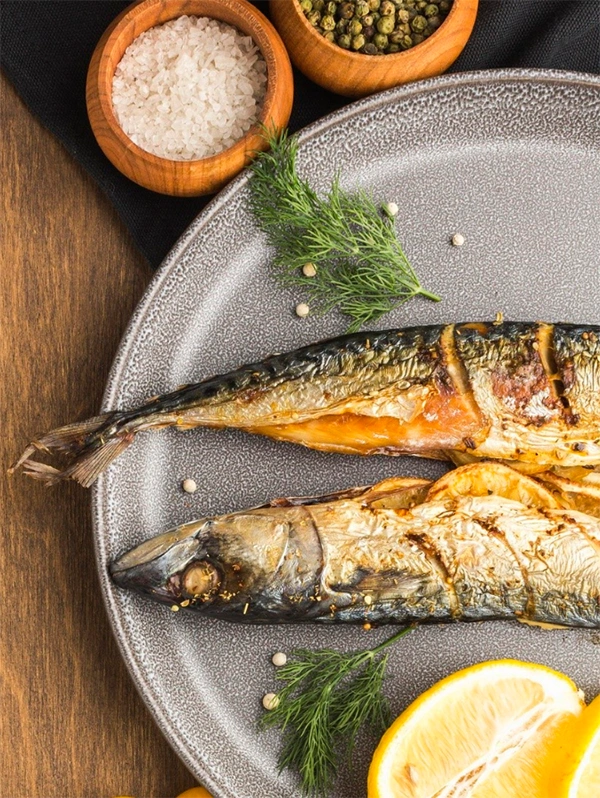

Top Health Benefits of Grilled Mackerel You Need to Know
Grilled mackerel is a powerhouse of essential nutrients, making it a highly nutritious meal. It is rich in omega-3 fatty acids, which support heart health, reduce inflammation, and improve brain function. Mackerel is also an excellent source of protein, providing all essential amino acids for muscle growth and repair. Additionally, it contains high levels of vitamin D, which is crucial for bone health and immune system support, as well as B vitamins (B12, B6, and niacin) that aid in energy production and metabolism. The presence of selenium and antioxidants helps combat oxidative stress, while its low mercury content makes it a safer seafood option compared to larger predatory fish. Paired with olive oil, lemon, and garlic, this dish not only offers incredible flavor but also contributes to overall well-being by promoting cardiovascular health and reducing the risk of chronic diseases.
Recipe :
For 4 people
Enjoy your delicious grilled mackerel!
When preparing grilled mackerel, several key factors must be considered to achieve the best results. First, choosing fresh mackerel is essential—look for clear eyes, firm flesh, and a fresh ocean smell. If using frozen fish, allow it to thaw properly in the refrigerator to maintain texture and flavor. Marination plays a crucial role in enhancing the taste and reducing the strong fishy odor. A mixture of lemon juice, garlic, and olive oil not only infuses flavor but also helps tenderize the fish. Proper grilling technique is also important—ensure the grill or pan is well-heated before placing the fish to achieve a crispy, golden-brown exterior without overcooking the inside. Brushing the grill with oil prevents sticking, and flipping the fish carefully using a spatula ensures it remains intact. Lastly, be mindful of cooking time; overcooked mackerel can become dry, so aim for 5-7 minutes per side until the flesh is opaque and flakes easily.

Grilled mackerel is highly versatile and fits into various healthy diets, but it may not be suitable for everyone. It is an excellent choice for ketogenic, paleo, Mediterranean, and high-protein diets, as it is naturally low in carbohydrates and rich in healthy fats and proteins. It is also gluten-free and suitable for individuals with gluten intolerance or celiac disease. Those following the DASH diet can enjoy this dish by moderating sodium intake and using fresh herbs instead of excessive salt. However, it is not suitable for vegan or vegetarian diets, as it contains animal protein. For those on a low-calorie diet, portion control and reducing oil usage can make it a more balanced meal. Additionally, individuals with high cholesterol or heart disease should moderate their intake of oily fish, even though its omega-3 content is beneficial. Lastly, people practicing intermittent fasting can incorporate this dish as a satisfying and nutrient-dense meal to break their fast while ensuring sustained energy and satiety.
...